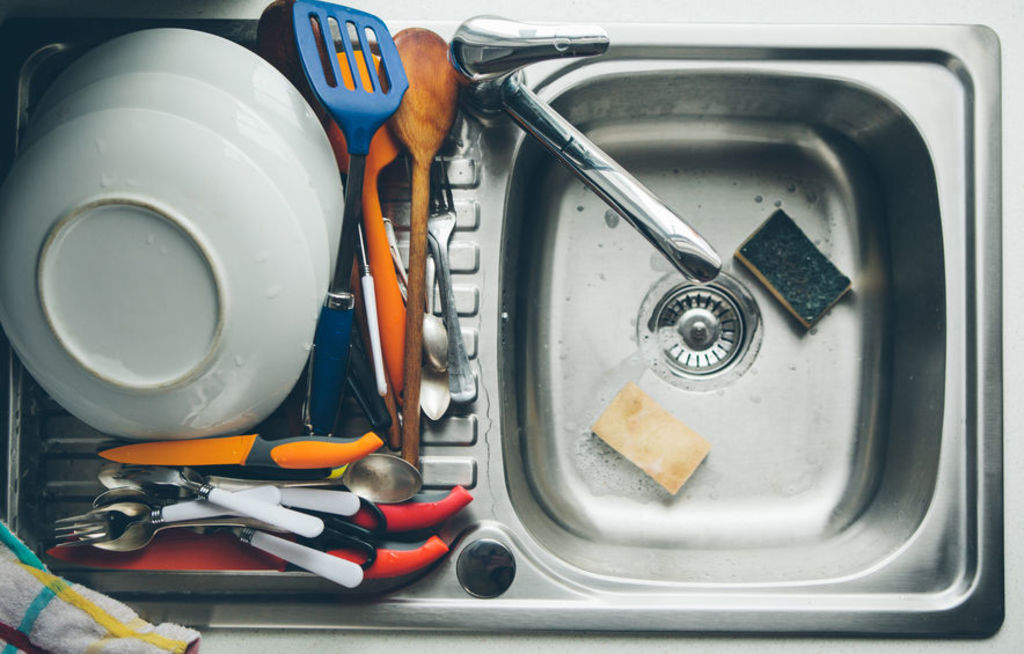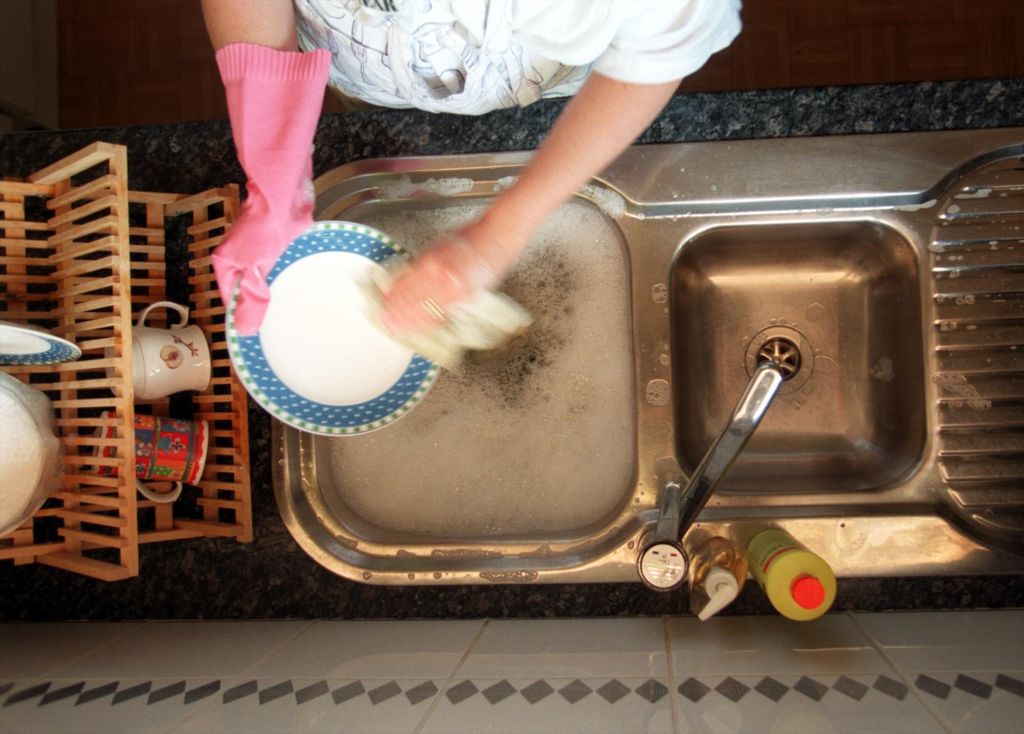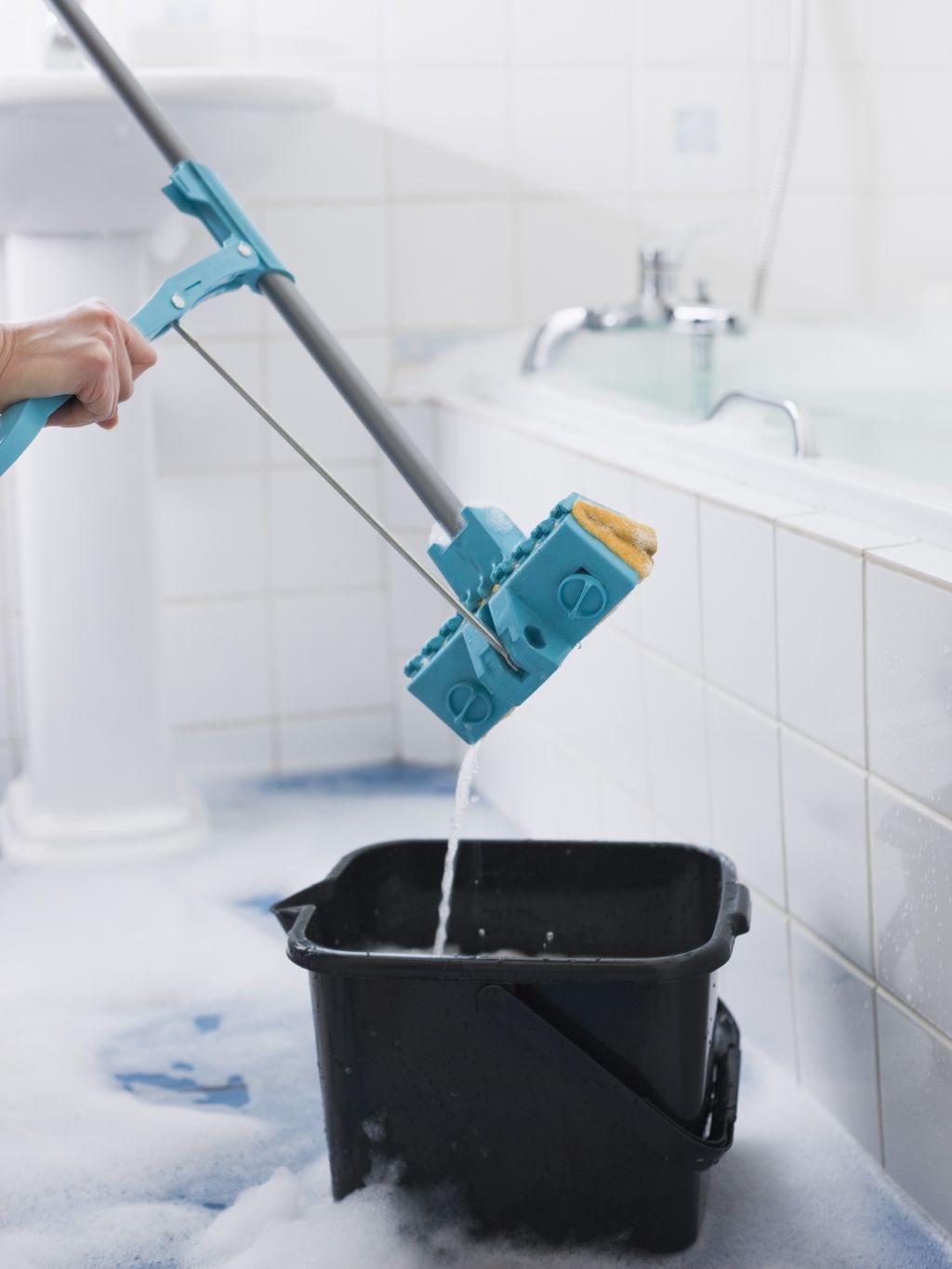'My marriage was in turmoil': How messy homes lead to break-ups

A decluttered interior is all the rage and good for our health. But what happens when our aspirations for domestic bliss are incompatible with our partner?
Writer and mother Stacey Freeman believes fighting about household tidiness played a key role in why her ex-husband walked out of their marriage seven years ago.
“I was organised beyond organised. My then-husband, not so much,” Freeman, a lifestyle editor at worthy.com, says.
“I began to resent picking up after him, and he began to resent me complaining about it and constantly picking up after him, as though he was a child. The cycle put pressure on an already troubled marriage.”
Some of the things that irked her included her husband’s propensity to leave plastic cups of Diet Coke around the house, stacks of old papers on the desk and the lights on whenever he left a room.
Listen to episode five of Domain’s new podcast Somewhere Else:
“Looking back, I see that I was using cleaning and tidying as a way to feel like I could control what I actually couldn’t – that my marriage was in turmoil,” she says. “When I tried to fix it, it was already too late. He had moved on with someone else, unbeknownst to me.”

For others, like Reddit member anonymousheart, the solution is to issue an ultimatum to their untidy other half.
“He thinks I am overreacting and that he doesn’t see cleanliness as an issue,” she posted on Reddit Relationships. “Currently I am the only one cleaning the house and I have to nag him to do anything. But I am considering giving him this ultimatum: If he doesn’t shape up, then I don’t want to live together any more.”
Unsurprisingly, household chores were the top reason for arguments among couples with kids, in research on 19,000 families by the US Department of Education. Double-income couples in full-time work were those most likely to spar over the issue.
Despite the documented commonality of such quarrels, the link to relationship breakdowns remains relatively under-examined and unappreciated.

Recently, Swedish researchers explored the issue in a study published in Sociology. They found women who felt they were doing more housework than their partner more likely to break up with them than those enjoying a more equitable division of housework.
Jo Gniel, a Melbourne-based relationship counsellor and psychotherapist, says different values around cleanliness are normal. “Because we all grow up in different houses,” she says. “Sometimes the expectations are gendered.”
The most important factor is how couples deal with the conflict and emotions that arise around this issue that matters, Gniel says. “It’s about navigating those differences so that resentment doesn’t build up around it.”

When the state of the house is just one of many things you fight about, it can indicate a more general unhealthy pattern in the relationship, she says. “Often, one partner will judge the other, which will amplify the relationship conflict. The message they get is they don’t measure up.”
Time poverty, laziness, and indecision were major reasons cited for not dealing with clutter, by those surveyed in the Australian 2017 Choosi Clutter Report.
However, sometimes deeper psychological issues are behind a partner’s mess, says Professor Mike Kyrios, an international hoarding expert and vice-president and executive dean of the College of Education, Psychology and Social Work, Flinders University.
“People who are depressed, for instance, don’t have any energy, cannot get out of bed, and don’t care any more,” he says. “They have a very inward-looking sense of existence and so they don’t really notice the stuff around them.”

Hoarding disorder and brain syndromes including dementia and schizophrenia are also related to clutter, mess and disorganisation, he says.
“In hoarding, the psychological symptom is too much acquisition and the inability to discard as a defence against feelings of uncertainty and threat. They’re more focused on hanging onto the stuff, so they don’t actually see the room,” he says.
People with hoarding problems have a high rate of divorce, singleness and social isolation, he says. “Quite often the partners without the hoarding problem don’t understand what’s going on because in every other way the individual might present as absolutely normal.
“Others go to the other extreme where they’re ‘clean freaks’ or ‘chuckers’,” Professor Kyrios says. This can also cause relationship conflict, particularly if a person suffers from an anxiety disorder such as obsessive-compulsive disorder, he says.
We recommend
States
Capital Cities
Capital Cities - Rentals
Popular Areas
Allhomes
More







